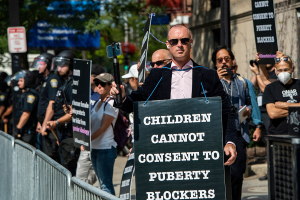Why God Designed Us to Live in Community
Life in this fallen world is hard. Preparation is hard. Change is hard. It's easy to get discouraged. It's easy to feel overwhelmed. It's easy to remain or revert to being self-absorbed. It's easy to feel alone. It's easy to think that no one understands what you are going through.
It's tempting to think like Moses that God must have gotten the wrong address, that this trial couldn't have been intended for your doorstep. It's easy to give in to wondering if the hardships of the Christian life are worth the trouble. It's easy to look over the fence and yield to debilitating envy. It's easy to let go of good and godly personal spiritual habits. It's easy, at the end of a long day, to try to numb or distract yourself by whatever temporary pleasure lies within reach.
It's easy to deceive yourself about the need to change, to grow in godliness. It's easy to lose your way and give up. But it's important for you to remember that life and ministry in the fallen world are hard, not only for you, but also for everyone in your care.
That's why God has designed us to live with others in a community of love. When I read 1 Peter 1, I'm always struck by how God has placed a call to love at the end of a discussion of hardship. As Peter summarizes what God is doing here and now, he uses three words: "suffer, grief, and trial." None of us wants these things! But Peter reminds us that they're tools of refinement in the hands of a loving Redeemer intent on completing in us what he's begun. Then Peter begins to lay out how to live productively in the middle of these hardships.
Listen to his final directive: "Now that you have purified yourselves by obeying the truth so that you have sincere love for your brothers, love one another deeply, from the heart" (1 Peter 1:22). Peter is saying something very powerful here. God hasn't simply called us to endure the refining fires of sanctification. He's ordained us to incarnate his love through the community he's placed around us. This community of love gives us hope and strength. But it also encourages us with the reminder that the One who tests and trains is the One who loves.
This community of love is meant to comfort the person who's discouraged, to strengthen the person who's weak, to encourage the person who has no hope, to come alongside the person who's alone, to guide the person who's lost his way, to give wisdom to the person lost in foolishness, to warn the person who's beginning to wander, to correct the person turning the wrong way, to give eyes to the person blind to God's presence, and to physically represent God's presence and love. No one, including pastors, is wired to live outside this community.
So as you're living and ministering in this broken world, what does God call you to do? There's one sure and reliable answer to the question: he calls you to seize every opportunity to be an instrument of his love.
An an ambassador of Christ, you've been called to participate in a community of love that is the church:
- That teenager attracted to the world needs God's love.
- That single person facing the death of personal dreams needs God's love
- That immigrant brother or sister who feels so out of place and so misunderstood needs God's love.
- That mom overwhelmed with her parenting responsibilities needs God's love.
- That man tempted to walk out of his troubled marriage needs God's love.
- That little boy who lost his father to divorce needs God's love.
- That woman living through the ravages of cancer needs God's love.
- That couple facing debts they can't pay needs God's love.
- The woman who now faces life without the man who's been her companion for decades needs God's love.
- That pastor carrying a heavy weight of spiritual responsibility needs God's love.
- That university student facing spiritual warfare needs God's love.
We could multiply example after example. There is no location, situation, or relationship this side of heaven where this love is extraneous. This love isn't about liking people. It isn't about romantic affection. It's something more than cultural niceness. It's deeper than being respectful or mannerly.
This love finds its motivation, hope, and direction at the cross of Jesus Christ. It's active, persevering, tender, understanding, forgiving, compassionate, and self-sacrificing love. The people in your care need this cross-shaped love, and so do you. You can love others because the One you represent never fails to love you perfectly this way in both your best and worst moments.




























